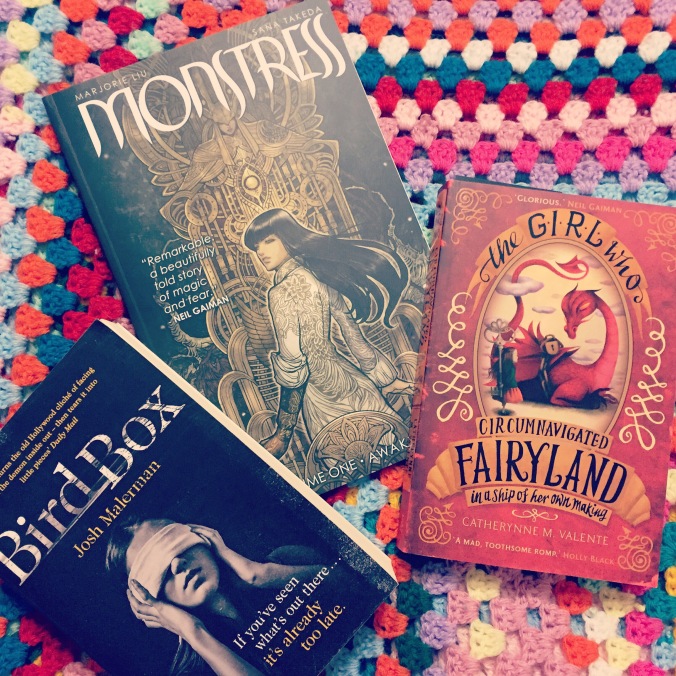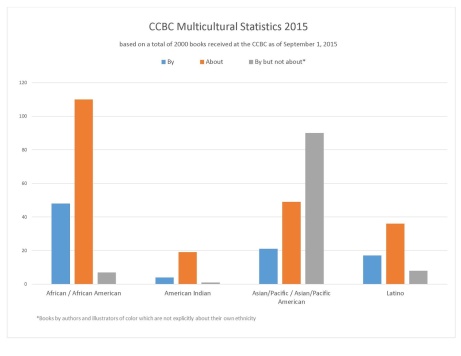Labyrinth Lost, by Zoraida Cordova – 3 stars
I was into this book the moment I heard the premise – I mean, Latina witches in Brooklyn? I am down. Alejandra is a bruja with remarkable powers, but she wants nothing to do with her magic. She knows that all magic has brought to her family is pain and suffering, so she decides to be rid of it once and for all by rejecting her magical birthright at her Deathday ceremony. But instead of banishing her powers, her entire family disappears instead. Alex has to journey through the mystical land of Los Lagos to rescue her family and confront the evil that is haunting her. Although this book was fun and the world had some really interesting elements, unfortunately it felt a bit ‘flat’ to me. I enjoyed it to a certain degree, but sadly it felt just a little too typical of its genre to be a truly engrossing read.
The Bloody Chamber, by Angela Carter – 5 stars
I don’t read a lot of short story collections, but this was amazing! (With the necessary caveat that in short story collections, some stories are always better than others.) Angela Carter is a masterful storyteller with gorgeous writing, and ‘dark creepy feminist fairy tale retellings’ is the definition of my wheelhouse. My favourite story was The Erl King, but I also loved The Bloody Chamber, The Courtship of Mr Lyon, The Tiger’s Bride, and The Lady of the House of Love. (In summary, lots of bad ass ladies either dealing with violent men or falling in love.) I also really enjoyed that she was also open with sharing a couple of different variations with how she would play with the same fairy tale – it showed her creativity and breadth, and each story was so imaginatively told that it never felt stale. I don’t know how, but I need more of this in my life.

Monstress: Volume One, written by Marjorie Liu and illustrated by Sana Takeda – 5 stars
Sitting to write this review, I legitimately just want to say “I. LOVE. THIS. BOOK.” (Complete with clapping emojis, if I could be bothered to figure out how to get them in WordPress.) This is an epic fantasy graphic novel, set in a matriarchal world where humans and Arcanics (half-human, half-‘Ancients’) are trying to maintain an uneasy peace after the devastation of war. But Arcanics are captured and enslaved by humans, and their bodies used by a human order of sorceresses known as the Cumaea to fuel their powers. In the midst of this, Maika Halfwolf is trying to come to terms with her difficult past and control her volatile abilities. The story addresses themes of persecution, slavery, and institutional corruption as well as intimately portraying the struggles Maika faces in her relationships with others and within herself.
In addition to having incredibly gorgeous art, the plot was gripping and the world is fascinating. Although it could be brutal and gory at times, which isn’t usually my thing, it never felt sensationalised. There were a couple of plot twists that were really well used to develop our understanding of the world. (I’m still not over our introduction to the Cumaean Inquisitorixes.) There’s also an effect I love in stories like this where, although I may be totally confused about parts of the worldbuilding or the plot, I can also sense that I am in very safe storytelling hands – that the author knows exactly what they are doing, and that the story will come together in a satisfying way. (If I am confused and think the author has no idea what they are doing, it stresses me out.) It’s funny that when I bought this, I didn’t realise it had only been out for a few months. I thought it had been out for ages, so now I am sorely disappointed that I’m going to have to wait almost a year for the next collected edition. That last plot twist… man, I need answers. (I know that issue #7 is out, but I am trying to exercise self-control. It’s damn hard right now.)
Bird Box, by Josh Malerman – 4 stars
Bird Box is an apocalyptic novel where something has broken into our world. And these creatures, whatever they may be, drive the people who have seen them to attack others and fatally harm themselves. What started as a few isolated incidents in Russia quickly snowballs until finally the few remaining humans alive have learned how to live without looking outside. And because humans can’t investigate without succumbing to the madness, they have no choice but to focus solely on survival. The book, predominantly from the perspective of a young woman named Malorie, alternates between her memories of the first year of life with this calamity, and her decision four years later to take her children and attempt to escape the home they have been trapped in all that time. The suspense steadily builds throughout the novel as you wait to see how the past will become the present. The climax of the book was brilliantly done, terrifying and brutal to the extent that I may have cried on the bus – not from sadness (although, frankly, that would not be out of character for me or out of place for those chapters) but from the sheer feeling of being so overwhelmed by the intensity of what was happening. This book definitely earned all its hype.
The Girl Who Circumnavigated Fairyland in a Ship of Her Own Making, by Catherynne M. Valente – 3 stars
I don’t really know how to describe this book. A twelve year old girl is plucked out of her kitchen by the Green Wind and goes on adventures in fairyland? This book has received a lot of attention, and given that I had (for months!) taken to randomly stalking the children’s section of bookstores in an effort to find it, I’m disappointed I didn’t love it more. That said, I think this was very much a ‘me’ problem – I’ve been noticing that I’m very particular when it comes to the ‘whimsy:solid plot’ ratio of a story. This was just too much whimsy for me and, given that it’s for middle grade readers, I think that’s fair enough. That said, it had a strong and interesting ending that set up the rest of the series nicely. Although I don’t think I’ll be continuing with these books, I’m still a little curious about Valente’s adult fiction so if I ever get the chance I might pick those up.






